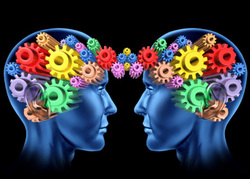
Its not that I choose to know things that are wrong, its just most of what makes up my life is based on what I have heard and taken for granted. Its not that I don't examine what I think, but for the most part I believe what I've read about ocean currents and not examined them for myself, for instance.
Reality is mostly by consensus. We seem to be constantly checking each other for a shared understanding of the universe and when there is a dispute we dismiss our misunderstanding as probably tribal, "damn republican", for example. We magnify miniscule differences to the point where they obscure the continents of common ground that we share. Even though the problem is probably perspective or a phrasing of the question.
For example, progressives want unemployment benefits so people won't starve, however people who stay on unemployment benefits for too long tend to get bored, so most conservatives think that the unemployed should find a job very quickly or some alternative employment strategy. Both people are right, in my opinion, but this is the simple version.
I suspect we will never create a perfect model on anything as Godel proved. If mathematics is thought over by the most brilliant of minds, how will we ever develop a perfect model of economics, law or politics? All systems must have the ability to evolve, especially models that involve humans. At the same time, every evolution of a system is not necessarily better and should be prepared to be dismissed.
This is also because our understanding is too limited of human behavior and human behavior can only be modeled to a limited extent. Average human behavior can be only predicted for so long, unless we do something like restrict choice and options with law, superstition and/or social pressure.
Having said that, I think it is still worth a try to model it. I think the important thing is that systems must be allowed to evolve as our understanding improves, so must the system. This is what most models ignore, once cast they tend to be rigid. People are still talking about Keynes, Marx, von Mises... We don't do that in physics and math, this is the equivalent of living in the past. We have learned so much from the failure of the communist states, where is this history written down? Yet people are still looking at Marx.
As soon as you say 'there are as specific group of actions'... you are modelling. Once you build even partial models you can test it for accuracy. Models can be tested to see how well they perform, this is part of the scientific method.
Most of the stuff I learn is wrong. Things like 'boys will never read books written by women' was held to be true by publishers until J K Rowling's Harry Potter books were published and proved the publishers wrong. We learn stereotypes all the time... this is usually labelled as a prejudice but its shorthand for our brains as it is difficult to relearn over and over again and only becomes important when we deal with certain things often. This is not an excuse for prejudice, but more an explanation as to why we know this is a sea-shell rather than having to learn sea-shells all the time unless we, for instance, collect sea-shells for a hobby, then we can categorize sea-shells. The reality is with any class of people there will be some good and some bad, some fat and some thin, some stupid, some caring, some clever... Does anyone think Obama or W represents them? Yet to much of the world Obama or W does represent the USA to the world. Scary thought, huh?
Sometimes we have insights into the nature of the world and sometimes it takes a long time to fully understand what that means. I have had those Eureka moments where I realized something but then it took me a long time to fully understand what the eureka moment actually meant. Understanding is not simple and it can take a while for our brain to truly grasp the insight. This concept is encapsulated by Gandhi:
“First they ignore you, then they laugh at you, then they fight you, then you win.”
While this is more relevant to the idea of once you have your idea, and you try telling other people your idea. First of all people have to hear you, then they laugh because of cognitive dissonance - your idea conflicts with their notion of how they see the world as is when they fight you. Once the cognitive dissonance disappears, people have grasped your idea, they will applaud you, presumably. But mostly only people who haven't thought about the subject will adopt and accept your ideas. But that is the corollary of what actually happens in understanding a concept yourself.
New ideas take awhile to be fully understood and to crystallize.
Part of the problem with artificial intelligence has just been merely understanding what it means to learn something by a computer. Mostly we are trying to replicate - or model human learning. I have been amused when I have read articles that then suggest as a eureka moment that computer learning is startlingly like human learning! Um yeah!
Human learning evolved as our understanding of the universe evolved. We know so little about the universe and ourselves. Our models of ourselves and the universe must be able to adapt as our understanding evolves.
 RSS Feed
RSS Feed
